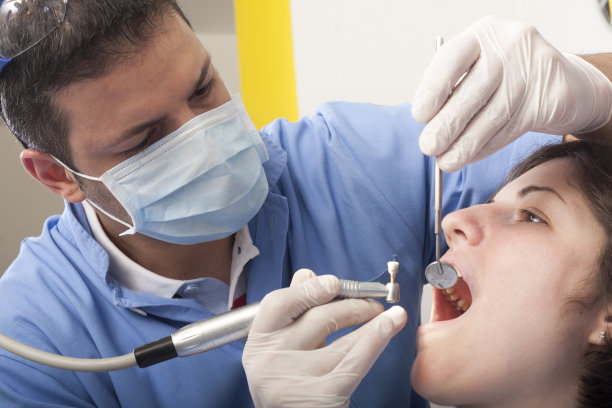Summary: Dental fillings are essential for addressing tooth decay and maintaining oral health. Before undergoing a dental filling procedure, it is crucial to consider several key precautions to ensure not only the success of the treatment but also the overall well-being of your oral health. This article discusses significant aspects such as consulting your dentist about materials, assessing any allergies or sensitivities, understanding the procedure and aftercare involved, and which lifestyle changes to implement for optimal results. By addressing these factors, you can ensure a smooth dental filling process and the maintenance of a healthy smile.
1. Choosing the Right Dental Filling Material

One of the first precautions to consider before getting a dental filling is the choice of filling material. There are various materials available, such as amalgam (silver), composite resin, gold, and ceramic. Each material has distinct features in terms of strength, aesthetics, and longevity. You must discuss the different options with your dentist to identify which one best suits your teeth and lifestyle.
For instance, if the filling is in a visible area of your mouth, your dentist might recommend composite resin or ceramic because they blend in with your natural tooth color. On the other hand, amalgam may be suitable for back teeth, where strength and durability are crucial in withstanding chewing forces. Being informed about these differences ensures you can make a decision that aligns with both cosmetic and functional needs.
Moreover, dont hesitate to inquire about the pros and cons of each material type, as well as the longevity and expected maintenance requirements. This knowledge will empower you to choose wisely, leading to long-term satisfaction with your dental fillings.
2. Assessing Allergies and Sensitivities
Before opting for a dental filling, it is essential to assess any allergies or sensitivities you may have. Some individuals might experience allergic reactions to specific dental materials such as metals or acrylics. Informing your dentist about any known allergies is crucial for selecting a safe filling material that won’t trigger adverse effects.
For those with sensitive teeth or gums, it may be beneficial to discuss potential discomfort during the procedure and what numbing methods will be employed. Your dentist can provide tips on managing sensitivity both during and after the filling process, making the experience more comfortable.
In addition, if you have a history of respiratory issues or other health conditions, it is important to tell your dentist. They might take special measures to minimize risks during the procedure, ensuring your safety and comfort throughout the filling process.
3. Understanding the Dental Filling Procedure
Educating yourself about the dental filling procedure is fundamental before undergoing the treatment. Knowing what to expect can significantly reduce anxiety and enhance cooperation during the procedure. Typically, the process involves the removal of decayed material, cleaning the cavity, and then filling it with the chosen material.
During this time, local anesthetic is usually administered to numb the area, which helps minimize discomfort. Understanding how long the procedure will take can also help you plan your day accordingly. It is essential to communicate any concerns with your dentist beforehand, allowing them to provide personalized assistance tailored to your needs.
After the filling is placed, a follow-up discussion with your dentist about post-treatment care becomes vital. Knowing the dos and don’ts after receiving a filling helps in avoiding any complications and ensuring optimal healing. A detailed aftercare plan can significantly impact the longevity of your filling.
4. Implementing Lifestyle Changes for Oral Health
After undergoing a dental filling, consider implementing some lifestyle changes for maintaining optimal oral health. Regular dental check-ups are imperative to monitor the health of your fillings and catch any potential issues early. Discussing the recommended frequency of visits with your dentist will help establish a routine suited to your needs.
Additionally, practicing good oral hygiene—such as brushing twice a day and flossing daily—will aid in maintaining not only your fillings but also your overall oral health. Using fluoride toothpaste and mouthwash can provide extra protection against decay and strengthen tooth enamel.
Lastly, be mindful of your diet. Limiting sugary snacks and beverages, as well as acidic foods, can reduce the risk of additional decay around your fillings. Staying hydrated and consuming a balanced diet rich in vitamins and minerals also contributes to the health of your teeth and gums, setting a solid foundation for long-term oral well-being.
Summary:
In conclusion, preparing for a dental filling requires careful consideration of several essential precautions, from choosing the right filling material to assessing allergies and understanding the procedure. By taking the time to discuss these factors with your dentist, you can ensure a successful treatment experience while promoting your oral health. Committing to lifestyle changes can further enhance the longevity of your dental fillings and overall advantage.
This article is compiled by Vickong Dental and the content is for reference only.
Vickong Dental
Vickong Dental is a large medical group established in Hong Kong in 2008 by professors from well-known medical universities in Guangdong and Hong Kong, as well as medical doctors from key national '985' universities (including Master's supervisors and senior professors). The chain of branches brings together expert dentists with PhDs and Master's degrees from Hong Kong and Mainland China, committed to providing high-quality dental treatment.
"Vickong Dental Practices the University Motto of 'Healing and Serving Society,' with a Stable Operation for Sixteen Years. It Has Been honored with Hong Kong Enterprise Leaders's Choice,' and is a Global Trusted Implant Center for the Nobel Implant System. Recommended by Hong Kong Metro Broadcast and Guangdong Television, it Serves Customers from Over Thirty Countries and Regions, Gaining the Trust and Favor of Citizens from the Guangdong-Hong Kong-Macau Greater Bay Area and Surrounding Cities.

Thousands of customers' unanimous praise
The most recognized and highly recommended dental service by customers in the Guangdong-Hong Kong-Macau Greater Bay Area
We Ensure You Receive Detailed Care and Attention Here
Hong Kong standards, Shenzhen prices, Your Trusted English-speaking dentists

Vickong Dental Medical-Grade Instrument Disinfection Process
Vickong Dental Medical-Grade Instrument Disinfection Process

Vickong Dental Chain: A Warm and Comfortable Environment for Treatment






Appointment Hours

Q&A
Why choose Vickong Dental?
Vickong Dental practices the university motto 「Medicine to Benefit Society」, with each branch bringing together highly qualified dentists with doctoral and master’s degrees from Hong Kong and the Mainland, and has maintained seventeen years of steady operation。Recipient of 「2024 Hong Kong Enterprise Leaders Brand」, 「2025 Hong Kong Enterprise Leaders Brand」, a Nobel Biocare Global Trusted Implant Center, and a brand recommended by Metro Radio Hong Kong and Guangdong TV。
To date, we have served customers from more than thirty countries and regions,earning exceptionally high word-of-mouth recognition and trusted recommendations from residents across the Guangdong-Hong Kong-Macao Greater Bay Area and surrounding cities
We have eight major branches in Zhuhai、Shenzhen,and a consultation and service assurance center in Hong Kong,so you can book a free consultation at any time for any questions,which is very reassuring.
If I do not accept the quotation after the CT scan, will I be charged??
No! As long as the actual treatment has not started, you will not be charged any fees.
Will there be any additional charges during the treatment process?
No, there won’t be any additional charges. Before treatment begins, we will clearly explain the treatment plan and its corresponding fees. Only after the patient agrees and signs the consent form will we proceed with the dental service.
Can I pay in Hong Kong dollars?
Yes. Vickong Dental accepts payment in Hong Kong dollars. The amount will be converted based on the exchange rate of the day, and the applicable rate will be clearly communicated to you in advance.
Can I reschedule my appointment at any time?
Yes. Please contact us via **WeChat** or **WhatsApp** as early as possible, providing your original appointment time and details, along with your preferred new date and time slot for rescheduling.













